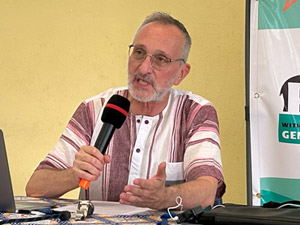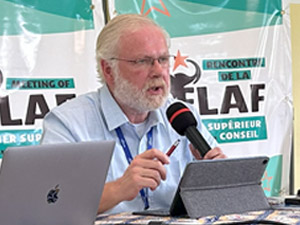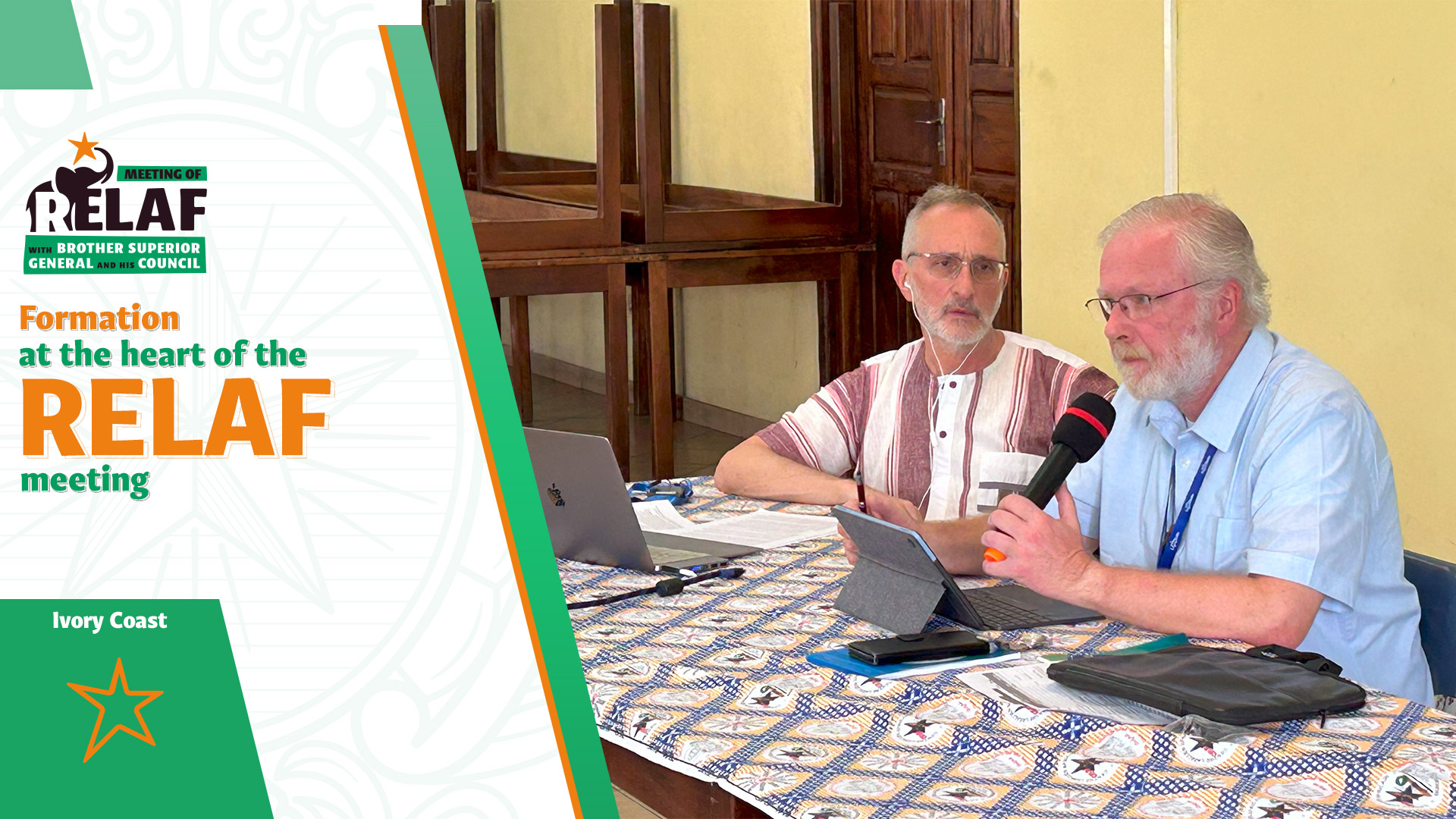Within the framework of the Meeting of the Lasallian Region of Africa-Madagascar (RELAF) with Brother Superior General and his Council, which is being held in the city of Abidjan (Ivory Coast) from 13 to 17 November, the formation of Brothers and Lasallian Lay Partners was one of the key issues in the reflection and discernment of the 37 participants, among whom were the Brothers Visitors, Auxiliary Visitors, Bursars and those responsible for the Lasallian Educational Mission in the five Districts and the Delegation.
“Brothers’ formation is a huge challenge in all the places where we are present and blessed by vocations to the Brother’s life“, assured Brother Carlos Gómez, Vicar General of the Institute, reflecting on the matter. Nevertheless”, he continued, “for several decades the Institute has made clear choices that have led us to understand that the formation of the laity is equally important”.
Formation programmes as “leaven”

While deepening on the challenges regarding the Brothers’ formation, Br Carlos stressed that “the first challenge is to ensure that our formation houses and our formation programmes are, in the full sense of the word and in all their implications, ‘Leavening Projects'”, claiming that “if there is a place and a space where we have the opportunity to transform leaven into life, it is in the formation process of our young Brothers“.
Likewise, the Brother Vicar General also evoked some of Pope Francis’ reflections on the care for life and its safeguarding, as “artisans of peace ready to generate processes of healing and re-encounter with creativity and audacity”, as well as on synodality, an expression which means ‘walking together’ as baptised members of the People of God, because “the Church is not a pyramid, but a community, where each Christian fulfils his or her mission, as a pastor, lay person or in religious life”.
The Formation of the Brothers
Similarly, clericalism and ‘worldliness’, frequently denounced by the Bishop of Rome, represent an essential challenge in the Brothers’ formation, understanding that “clericalism is not exclusive to priests or bishops; it also exists in the female and male consecrated life when we reproduce worldly patterns and live our vocation as a relationship of power“, asserted Br Carlos Gómez, proposing, likewise, the need to address some specific challenges in the Brothers’ formation:
- To have competent formators and, above all, ‘witnesses’ with “a story to tell”, with moral authority, listening skills and respectful of personal processes. “Brothers ‘with the smell of the sheep'”.
- To assume the pastoral ministry of vocations based on the centrality of the catechumenal processes (catechesis, ecclesial life, sacraments of initiation…) and the importance of getting to know the candidates through an adequate plan of accompaniment that includes interviews, and visits to the family and their environment.
- To take on formation programmes in the Districts for Brothers, with their specificity in the stages of Postulancy, Novitiate, Scholasticate and time of temporary Profession; but also, for the formation of lay associates, through systematic and sequential processes.
The formation of lay Lasallians

For his part, Br Joël Palud, General Councillor of the Institute, recalled that “the formation programmes for Lay Partners have been in place for several decades, although we do not have a definitive doctrine on this matter, but rather convictions that we try to reflect and adapt to local realities”.
In this regard, continued Br Joël, “today we need to revisit this question from other perspectives: the search for spirituality among our contemporaries; formation in our charism as a possible dimension of the ‘new evangelisation’; the development of a Lasallian culture of vocations, in a broader sense, which validates the need to train those Lay Partners who feel an authentic call”. Clearly, “the laity enrich our own vision of the Founder”, he stressed, since “the charism of John Baptist de La Salle is a gift for the Church and not only for his Institute”.
Moreover, beyond the formation of our close collaborators, it is of course necessary to communicate the Lasallian heritage to the general public” if one considers that “any educator, even if he or she does not work with us, should be able to be inspired by the character of the Patron Saint of educators (…) for the good of education in general, and not only of our schools”.
Finally, the General Councillor also drew attention to the fact that “when the lay Lasallian vocation is recognised, it must be accompanied by a consistent process of formation which respects each person’s own journey”. A process which, moreover, must include “a large number of lay people” if we aspire to have, more and more, “committed and responsible collaborators who are in line with our charism”.
It is not, therefore, a question of training only those who fit the profile of people capable of exercising responsibilities. “The rationale should be to train a large number of people and to progressively offer responsibilities to some, among the many possible options”, bearing in mind that “training lay people to be good professionals at our side also means allowing our Brothers to live their vocation to the full: sometimes we ask young Brothers to take on administrative functions or the role of bursar. This is not the reason why they entered the Institute. Of course, we can accept this service for a time, but it is not necessarily our charism”, concluded Br Joël.



